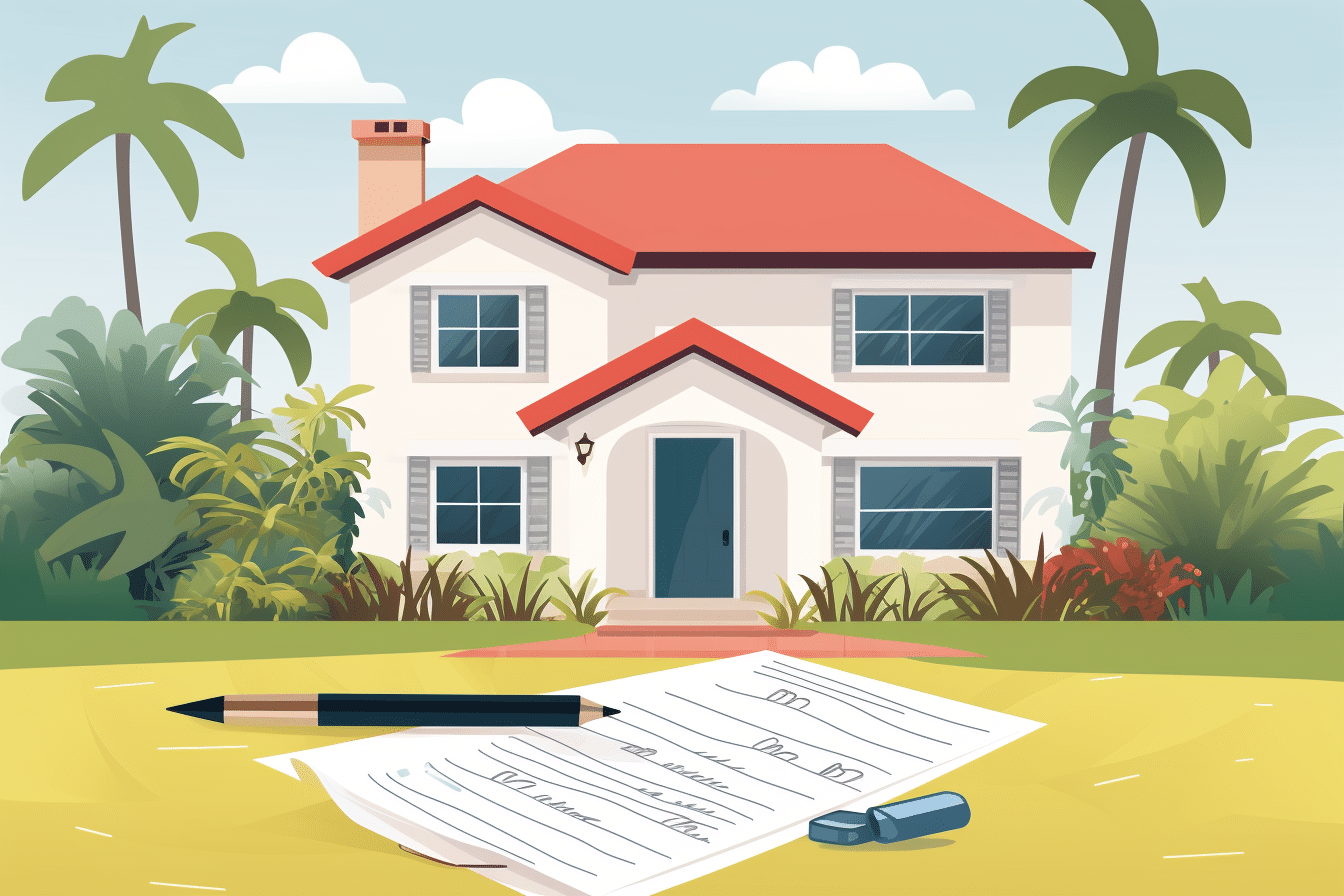In Florida’s bustling and dynamic real estate market, a thorough understanding of home appraisal processes is vital for homeowners seeking to sell or refinance their properties. The importance of an accurate appraisal cannot be overstated; it serves as the foundation upon which crucial financial decisions are based, affecting individual property owners and entire communities.
As such, adequately preparing for this essential evaluation requires diligent planning and adherence to proven strategies to maximize a property’s worth in the eyes of professional appraisers. To guide Floridian homeowners through this complex process, insights from experienced licensed real estate appraisers must be considered.
These informed perspectives provide invaluable information on how best to present property during an appraisal, ensuring that all aspects contributing to its value are appropriately showcased. By adhering to these expert recommendations – centered around maintenance, improvements, comparables analysis, and documentation – any homeowner can feel confident in navigating the complexities of home appraisal preparation while enhancing the sense of community among fellow Floridians embarking on similar endeavors.
Prioritizing Maintenance And Repairs
When preparing for a home appraisal in Florida, an ounce of prevention is worth a pound of cure. In other words, prioritizing maintenance and repairs can significantly impact the overall value of a property.
One crucial aspect appraisers consider when determining the market value of a home is its condition. Homeowners can ensure their property meets or exceeds industry standards by attending to necessary upkeep tasks and addressing any underlying issues.
Maintenance budgeting plays an essential role in preserving the value of a residence over time. It entails setting aside funds for routine landscaping, pest control, and servicing significant appliances like air conditioning units – particularly vital in Florida’s warm climate. Additionally, allocating resources toward repair timelines helps anticipate potential problems before they escalate into costly damages that may negatively influence the appraisal outcome.
Proactively scheduling assessments by licensed professionals ensures timely detection and resolution of concerns related to structural integrity, roof conditions, plumbing systems, and electrical wiring, among others.
A well-maintained residence contributes to higher valuation and fosters a sense of pride and belonging among its occupants. As part of this process, homeowners should conduct regular inspections and stay informed on best practices for maintaining their properties in peak condition.
Such efforts ultimately culminate in an advantageous position during an appraisal, with positive outcomes reflecting careful planning and responsible stewardship over time. The next phase involves undertaking strategic property improvements that enhance appeal while maximizing return on investment.
Undertaking Strategic Property Improvements
Upon addressing the most pressing maintenance and repair issues, homeowners should consider undertaking strategic property improvements. These enhancements not only boost the overall value of a home but also create an inviting atmosphere for potential buyers. One can significantly influence the appraised value by focusing on exterior and interior upgrades with a high return on investment (ROI).
Strategic landscaping is one such improvement that can substantially impact curb appeal without requiring exorbitant expenses. Incorporating elements like well-maintained lawns, attractive flower beds, and thoughtfully placed trees create an aesthetically pleasing environment that appeals to prospective buyers’ desires for belonging. These outdoor enhancements may also increase energy efficiency by providing natural shade or windbreaks during Florida’s hot summer months.
Concurrently, investing in interior upgrades that contribute positively to a home’s valuation is crucial. Updating essential spaces like kitchens and bathrooms with modern fixtures and finishes can significantly elevate perceived worth. Furthermore, ensuring up-to-date functional aspects like plumbing, electrical systems, and HVAC will provide peace of mind for future occupants while increasing appraisal values accordingly.
With these targeted improvements complete, attention can shift towards analyzing comparable properties in the area to further refine expectations surrounding appraisals.
Analyzing Comparable Properties In The Area
It is of the utmost importance, nay – vital, to plunge into the depths of Florida market trends and scrutinize comparable properties in one’s area when preparing for a home appraisal.
This seemingly Herculean task requires an unwavering commitment to research and analysis that would make even Sherlock Holmes envious. Please don’t worry, however, as this undertaking will undoubtedly reward those with valuable insights into their property’s value relative to others in their neighborhood.
As a licensed real estate appraiser in Florida, one must meticulously examine each facet of these comparable properties – from square footage and architectural style to recent renovations and neighborhood amenities.
Through such rigorous investigation, patterns emerge, which can help illuminate any disparities between your home and its competition within the local marketplace.
Furthermore, staying current on burgeoning developments or changes affecting nearby communities may provide a beneficial context for understanding fluctuations in demand and supply dynamics within the broader region.
Having amassed a wealth of knowledge about the attributes of surrounding homes and relevant Florida market trends, you are now well-equipped to anticipate questions or concerns from potential buyers or lending institutions during the appraisal process.
With newfound confidence from understanding the intricate tapestry of factors influencing regional property values, you’ll be prepared to address questions efficiently while further honing your ability to assess your home’s worth about others nearby accurately.
Now that we have laid a strong foundation by analyzing comparable properties in the area, we would like to advance towards assembling important documents and records essential for completing our preparation before inviting an appraiser into our domain.
Gathering Important Documents And Records
Upon thoroughly examining the comparable properties in the area, it is essential to shift focus toward gathering and organizing important documents and records. This step is crucial in ensuring a smooth appraisal process by providing accurate information for the appraiser. Document organization and record accuracy are vital factors impacting an appraiser’s assessment of your property’s value.
To guarantee ease of access during the appraisal, consider preparing the following documentation:
- Property deed or title report: This document details ownership history, legal descriptions, and any encumbrances on the property.
- Home improvement receipts and permits: Collect all relevant paperwork about significant upgrades or renovations within the last 5-10 years.
- Recent utility bills: This helps showcase energy efficiency improvements and provides insight into monthly expenses associated with living in the home.
This comprehensive approach saves time and leaves little room for errors or discrepancies. Remember that presenting well-prepared materials creates a positive impression on the appraiser, demonstrating a commitment to maintaining the excellent condition of one’s property while keeping detailed accounts.
With the necessary documents, homeowners can effectively communicate their understanding of local market trends to support their valuation expectations. The ability to confidently discuss recent sales comparables will ultimately aid in establishing rapport between homeowner and appraiser.
So be prepared, stay organized, and look forward to collaborating with your appraiser to determine your Florida home’s worth. Up next are tips for effective communication throughout this critical process.
Effectively Communicating With The Appraiser
As a well-oiled machine operates smoothly, so must communication between homeowners and appraisers. Effectively communicating with the appraiser is crucial to achieving an accurate and fair home appraisal in Florida.
One of the keys to success is establishing appraiser rapport early on during the process. This can be achieved by being responsive, respectful, and open-minded when discussing property details, concerns, or questions that may arise.
When conversing with the appraiser, clarifying expectations from both parties should take center stage. Homeowners are advised to provide any relevant documents or information that could impact the valuation positively. These materials might include recent improvements made to the property, sales comparisons within the neighborhood, permits for renovations or additions, and any unique features exclusive to this particular residence. Sharing such insights will ensure that the appraiser considers all essential aspects of the property while assessing.
A harmonious interplay between homeowner and appraiser throughout the appraisal process fosters a sense of belonging among individuals who share common goals – obtaining an accurate valuation for one’s most significant financial asset.
Remember that effective communication entails active listening skills and thoughtful responses without unnecessary jargon or technical terms, alienating those unfamiliar with real estate terminology. By adhering to these guidelines, homeowners and appraisers can work symbiotically towards attaining an unbiased evaluation aligned with market trends and conditions prevailing in Florida’s dynamic housing landscape.
Frequently Asked Questions
What Specific Factors Do Appraisers Consider When Evaluating A Home In Florida, Given The Unique Climate And Potential For Natural Disasters?
In evaluating a home in Florida, appraisers consider specific factors that account for the region’s unique climate and potential for natural disasters.
Aspects such as proximity to flood zones, susceptibility to Florida hurricanes, and sinkhole risks are crucial in determining property values.
Additionally, structural elements designed to withstand severe weather conditions, including hurricane-resistant windows and roof reinforcements, contribute positively to the overall valuation.
Furthermore, homes with appropriate drainage systems and elevated foundations demonstrate increased protection against floods resulting from torrential rains or storm surges.
Licensed appraisers ensure accurate property valuations that reflect market demand and potential risk factors inherent to Florida’s distinctive landscape by thoroughly assessing these environmental variables alongside traditional real estate appraisal criteria.
How Do Florida’s Seasonal Variations In Real Estate Market Activity Impact The Home Appraisal Process And Value?
As the Sunshine State’s real estate market ebbs and flows with the tides of seasonal market trends, appraisal timing plays a pivotal role in determining home values.
In Florida, fluctuations in market activity often correspond to various seasons—typically peaking during winter months when snowbirds flock southward seeking warmer climates and dipping during hurricane-prone summer months. These shifts may affect property demand, inventory levels, and appraised values.
Consequently, licensed real estate appraisers in Florida must remain vigilant in observing these cyclical patterns while considering relevant comparable sales data from similar periods to ensure their valuations’ accuracy and reliability.
By incorporating such keen insights into their analyses, appraisers foster an engaging sense of belonging for homeowners by accurately reflecting the tangible aspects and intangible nuances that distinguish Floridian properties in the ever-changing landscape of real estate valuation.
Are There Unique Florida Building Codes Or Regulations Appraisers Take Into Account When Assessing A Property?
In assessing property in Florida, appraisers consider specific building codes and regulations unique to the state. These Florida regulations encompass various aspects, such as structural requirements for hurricane resistance, energy efficiency standards, and flood zone compliance measures.
Building codes serve as guidelines for construction practices that ensure safety, durability, and sustainability within the region’s particular environmental conditions. Consequently, an accurate appraisal requires familiarity with these local ordinances to evaluate whether a residential or commercial property adheres to the established criteria.
A comprehensive understanding of Florida-specific building codes ensures an objective valuation and fosters trustworthiness among clients seeking professional guidance navigating this complex real estate market landscape.
How Do The Home Appraisal Requirements Differ Between Various Types Of Loans Or Refinancing Options Available In Florida?
Painting a vivid picture of the diverse landscape of Florida loan types and refinancing options, it is crucial to understand that home appraisal requirements can vary significantly depending on the financial path chosen.
When assessing properties for various financing scenarios such as conventional loans, Federal Housing Administration (FHA) loans, or Veterans Affairs (VA) loans, appraisers must adhere to specific guidelines set forth by each program.
For instance, FHA and VA loans typically have more stringent property condition standards than conventional mortgages, ensuring homes meet minimum safety and livability criteria.
As a licensed real estate appraiser in Florida, one’s expertise extends beyond merely evaluating market value; it encompasses an intricate knowledge of the unique nuances of different lending programs.
Navigating this complex terrain fosters a sense of belonging among borrowers and appraisers while striving to achieve homeownership dreams in the Sunshine State.
In The Case Of A Waterfront Property In Florida, What Additional Factors May Influence The Appraisal Value, And How Can Homeowners Prepare For These?
In evaluating waterfront properties in Florida, appraisers must consider additional factors that can significantly influence appraisal values. Among these factors are waterfront erosion and marine accessibility.
Waterfront erosion may negatively impact property value due to its potential for diminishing shoreline stability and creating safety concerns. Homeowners should proactively address this issue by implementing proper soil stabilization techniques or investing in professional consultation regarding coastal management strategies.
Marine accessibility is crucial in determining property value, as it directly affects the ease with which homeowners can access water-based recreational activities or transportation options from their residences. Ensuring that docks, seawalls, or other structures facilitating marine access are well-maintained and compliant with local regulations will maximize one’s home value during an appraisal process while fostering a sense of belonging among residents within these unique environments.
Conclusion
In conclusion, preparing for a home appraisal in Florida requires homeowners to consider the unique climate and potential for natural disasters.
Appraisers will evaluate each property based on location, structural integrity, adherence to building codes, and seasonal market activity.
Additionally, waterfront properties demand further attention due to their proximity to water bodies and susceptibility to flooding.
Ironically, while the Sunshine State offers an idyllic setting for prospective homeowners, it also presents challenges that can impact property values.
By understanding these nuances and taking appropriate measures before a home appraisal, Floridians can ensure they receive accurate assessments of their investments – even if Mother Nature occasionally throws a curveball their way.





